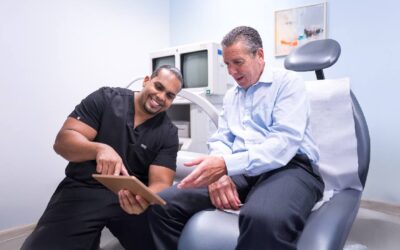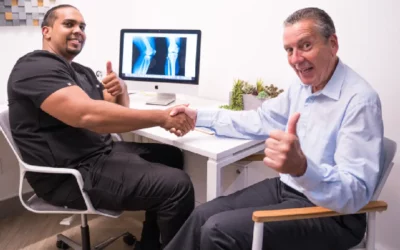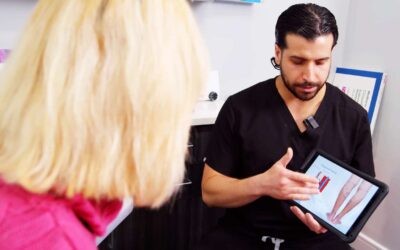When to see a Vascular Doctor?
When to see a Vascular Doctor?
A vascular doctor, also known as a phlebologist, is a medical professional specializing in vascular health and vein treatments. You should see a vascular doctor whenever you have the signs and symptoms of vein problems. The most obvious signs and symptoms of vein disease include spider veins and varicose veins, but you should also consult a vascular doctor for symptoms that seem unrelated. Below, we highlight some of the situations when you should consult a vein treatment center in NJ.
When you have ugly spider veins and varicose veins
You should consult our board-certified vascular surgeons if you have spider veins and varicose veins. Spider veins are dense clusters of red, blue, or purple veins that appear on the skin’s surface, expanding outwards from a central location. They don’t bulge out of the skin’s surface, but they still look hideous. Varicose veins are large blood vessels that bulge out of the skin’s surface, looking like a mass of tangled, twisted, and knotted ropes. They can be red, green, blue, purple, or skin-colored. Our minimally invasive spider vein and varicose vein treatments can remove the unhealthy veins, restoring your legs’ beauty.
When you feel self-conscious about your vein problems
You should schedule an appointment with our vein doctors in NJ because vein problems can cause severe self-consciousness and anxiety. Spider veins can initially be hidden under your clothes. But as they continue spreading and you develop varicose veins, it becomes harder to hide them underneath your clothes. Patients with spider veins and varicose veins eventually start wearing oversized clothes to conceal their vein problems and stop going to social events that involve wearing bikinis or swimsuits, such as beach parties. This can lead to self-imposed isolation and social anxiety.
When you have the signs and symptoms of chronic venous insufficiency
Chronic venous insufficiency is a medical condition wherein your vein valves collapse, and blood accumulates in your leg veins. It leads to increased pressure on the walls of your leg veins, leading to the outward protrusion of blood vessels. While spider veins and varicose veins are the most visible signs of vein disease, there are also other symptoms to consider. At the initial stages, vein disease leads to leg heaviness, restless leg syndrome, frequent leg cramps, and leg swelling. If you have the signs and symptoms of early vein disease, please contact our vein doctors for prompt treatment before your venous insufficiency worsens.
When you have advanced vascular complications
Venous insufficiency is a chronic circulatory disorder that worsens with time if left untreated. If you don’t treat vein disease at an early stage, blood will continue accumulating in your leg veins, eventually leading to serious complications. The lack of effective blood circulation will lead to skin discoloration. It will also prevent your wounds from healing effectively, leading to non-healing wounds (leg ulcers). The accumulated blood in your leg veins may turn into blood clots (deep vein thrombosis). If the blood clots break away, they may travel into your lungs and cause a pulmonary embolism.
What are the Signs of Vascular Disease?
- Leg heaviness
- Restless leg syndrome
- Throbbing leg veins
- Frequent leg cramps
- Leg swelling
- Leg pain
- Spider veins
- Varicose veins
- Skin discoloration
- Leg ulcers
- Deep vein thrombosis
We have listed the signs and symptoms of chronic venous insufficiency above. If you have any of these signs and symptoms, especially if they worsen at the end of the day or after long periods of sitting or standing still, please contact our board-certified vascular surgeons in NJ. We will examine your leg veins, review your medical history, and curate the ideal vein treatment plan for you.
What can I Expect at a Vascular Appointment?
During your vascular appointment at our vein center, the board-certified vascular surgeon will perform a thorough diagnosis and consultation. The vein doctor will examine your leg veins to study the visible signs of vein disease, such as spider veins, varicose veins, skin discoloration, and leg ulcers. They’ll also review your medical history because it can reveal a lot about your risk factors for vein disease. You will also be asked about your symptoms — please list all of the symptoms, even if you think it’s not related to your vascular conditions.
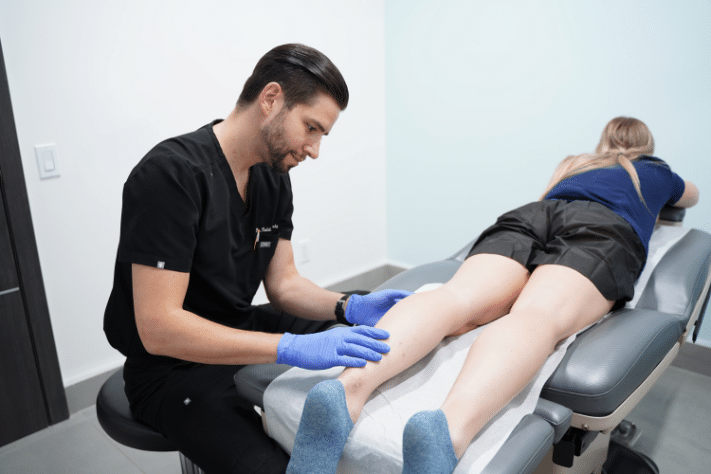
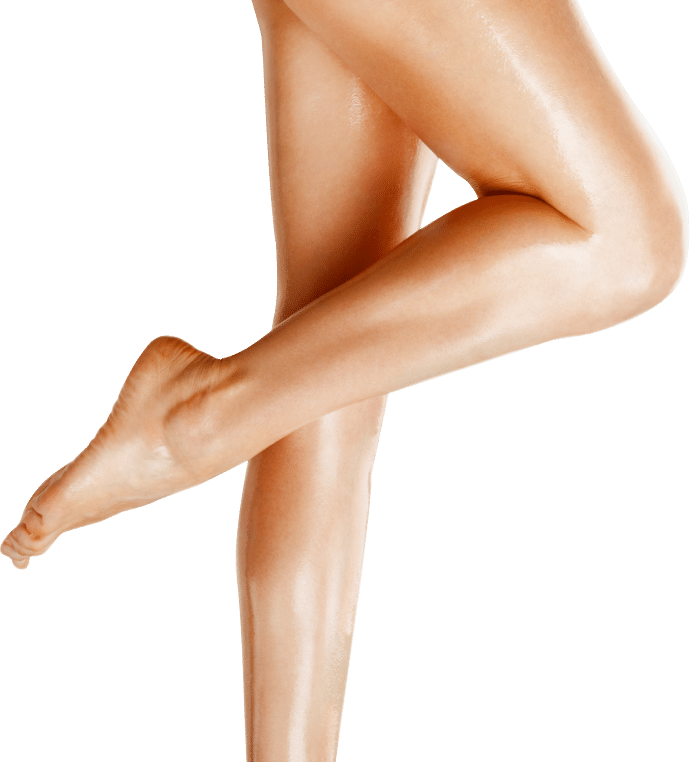
BOOK AN APPOINTMENT
Do you have any symptoms? Consult now with one of the Best Vein Specialist in New Jersey
How Long Does a Vascular Test Take?
Vascular ultrasound is performed to confirm if you have chronic venous insufficiency. A typical vascular test concludes within 30 minutes.
What Happens During a Vascular Ultrasound?
During the vascular ultrasound test, the vein doctor or technician will place the applicator over your legs. The device will generate ultrasound energy to visualize the blood flow in your leg veins on a computer screen. The vein doctor will study and interpret the visualization to determine if you have chronic venous insufficiency.
What Happens During Vein Treatments?
Spider veins and varicose veins can be treated using numerous minimally invasive vein treatments. Below, we provide a brief overview of the most effective vein treatments:
- Radiofrequency Ablation: The diseased saphenous vein is destroyed using thermal energy.
- Laser Ablation: The diseased saphenous vein is destroyed using laser energy.
- VenaSeal: The diseased saphenous vein’s walls are sealed shut using medical adhesives.
- Sclerotherapy: The spider veins’ walls are sealed shut via sclerosant injections.
Ambulatory Phlebectomy: The varicose veins are removed via incisions on the skin.
How Soon do I Recover From Vein Treatments?
Minimally invasive vein treatments don’t involve any recovery period. You may experience mild post-treatment swelling and discomfort, but these side effects dissipate after a few days. You can also control them using over-the-counter medications. You can resume your daily activities and work immediately after the procedure, but you should avoid strenuous workouts for a few days.
NJ Vein Doctors
Meet our team of New Jersey Vein Treatment Specialists
Vein Treatments are covered by most major medical insurances, including Medicare. Call us today to verify your insurance for FREE >
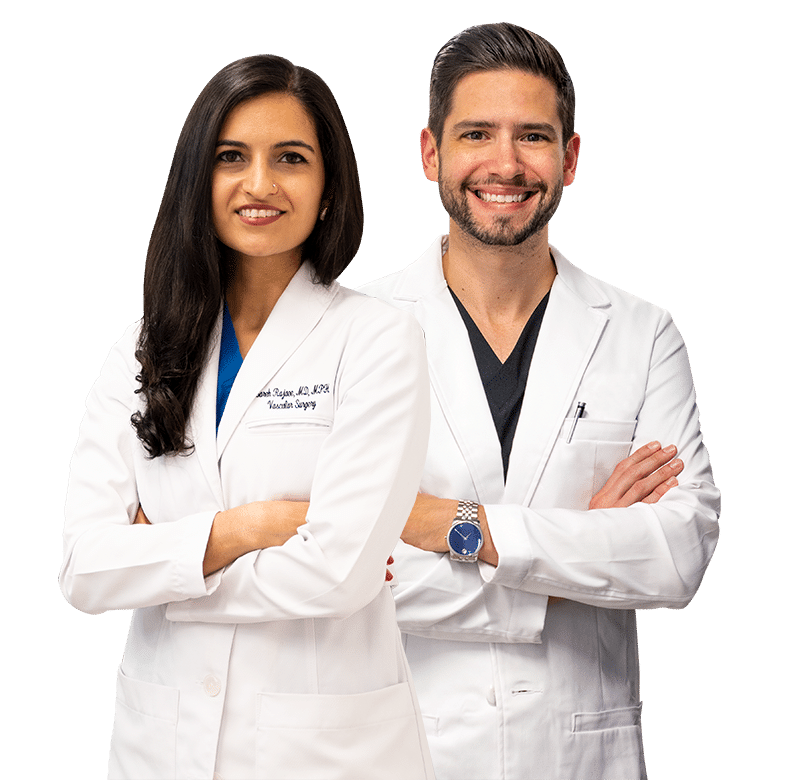
Meet our Team of Top Vein Specialists in New Jersey
Contact us
CALL US
Speak instantly with one of our team members; they will answer any questions you may have regarding insurance coverage, booking an appointment and our vein treatment locations. (973) 946-8082
BOOK APPOINTMENT
Visit our Book Appointment page and instantly request an appointment at the New Jersey vein center. We offer Free Insurance Verification before your appointment.
